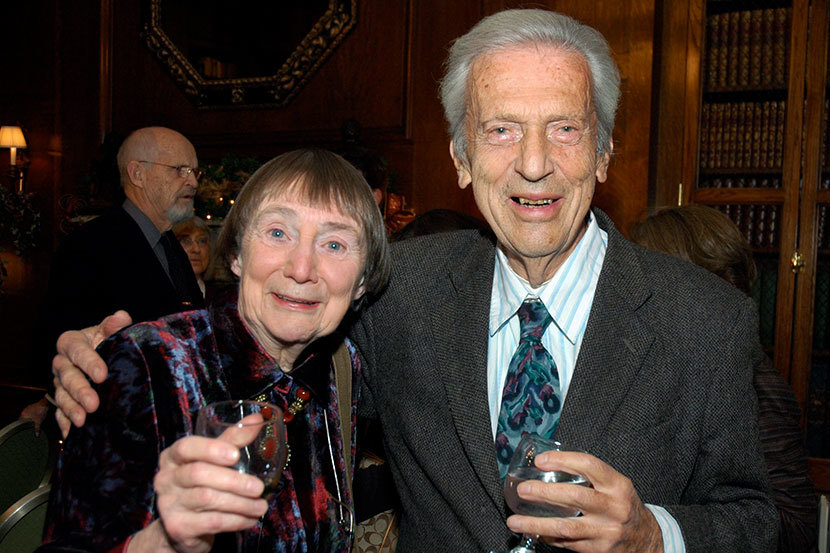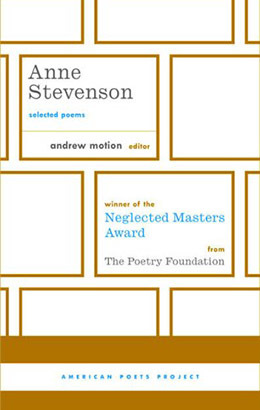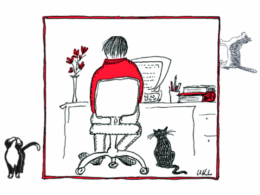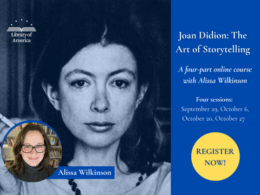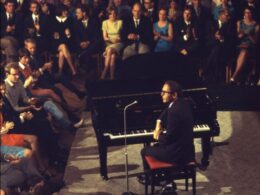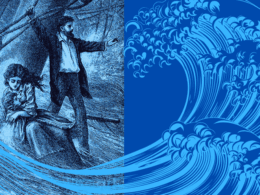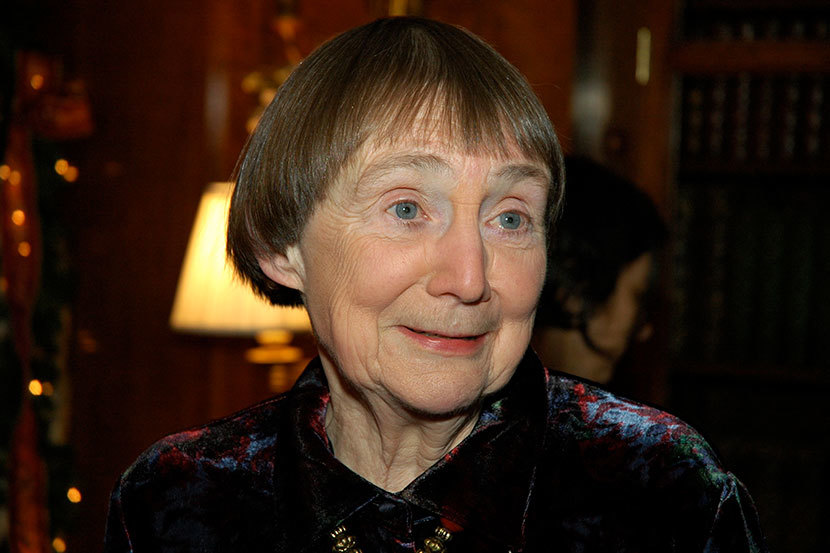
Poet Anne Stevenson died on September 14 at the age of 87.
Born in Cambridge, England, to American parents in 1933, Stevenson grew up in New England and in Ann Arbor, Michigan, and spent most of her adult life in England. In all she published more than a dozen volumes of verse (the most recent of which, Completing the Circle, was published by Bloodaxe Books in the UK earlier this year), along with two critical studies of Elizabeth Bishop, a biography of Sylvia Plath, and a collection of essays.
In an obituary for The Guardian, Jay Parini called Stevenson “an important poet by any measure” while also acknowledging that “she nevertheless had less attention than she deserved.” That deficit was partly remedied in 2007 when The Poetry Foundation bestowed on Stevenson its second Neglected Master Award, which was accompanied by the publication of a Selected Poems by Library of America in 2008, as part of its American Poets Project series.
In celebration of her Selected Poems, Library of America hosted a reading by Stevenson at the Colony Club in New York City in December 2008. Below, we reprint the remarks given by then–LOA Editor in Chief Geoffrey O’Brien prior to her reading.
Introduction by Geoffrey O’Brien
The book of selected poems that was edited by Andrew Motion and that The Library of America had the happiness of publishing is, as they say, a slim volume, but it contains immense reaches of space and time. Here are the landscapes of dream and the landscapes of geology. Here is life perceived at the level of cellular dissolution and in the context of the remotest stars, as in the poem “The Other House”: “Beneath me, infinitely deep, / Solidity dissolves. / Above me, infinitely wide, / Galactic winter sprawls.” And in the midst of that, as she writes in a different poem, “Consciousness walks on tiptoe through what happens.”
At any moment in a poem by Anne Stevenson we are apt to be surprised by a drastic shift in perspective. Often her poems are cascades of such shifts, and the elegance of her form does not disguise the furors and uncertainties of the passage. Every settled image is no sooner framed than unsettled. No moment is evoked without evoking as well the mysteriousness and monstrousness of time. She may encompass in a single poem the trajectory of a life, or of a series of lives, moving backward and forward within those trajectories to stunning and often heartbreaking effect. In her work the most ordinary and indistinguishable of moments is often, as in the poem “Washing My Hair,” the pivot for a sweep of what might be called metaphysical apprehension. A poem that begins with the difficulty of adjusting the water from a showerhead to the right temperature arrives, by a process that is made to seem as ineluctable as the flowing of water, at the question: “My soul, how will I recognise you / if we meet?”
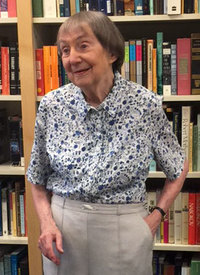
It is hard to isolate neat illustrative quotations from her poems because in each of them every part is linked to every other, chained or wreathed like human generations or like the notes of a musical composition. One would not need to know the importance of music in her life to gauge its importance for her art of phrasing and the variegated texture of her soundings. In some poems she can reduce everything to an attenuated solo for the innermost voice—“I have grown small / inside my house of words, / empty and hard, / pebble rattling in a skull”—and then again, in her narrative masterpiece Correspondences (1974), for a whole family tree of voices.
It’s a great honor and pleasure to introduce Anne Stevenson.
